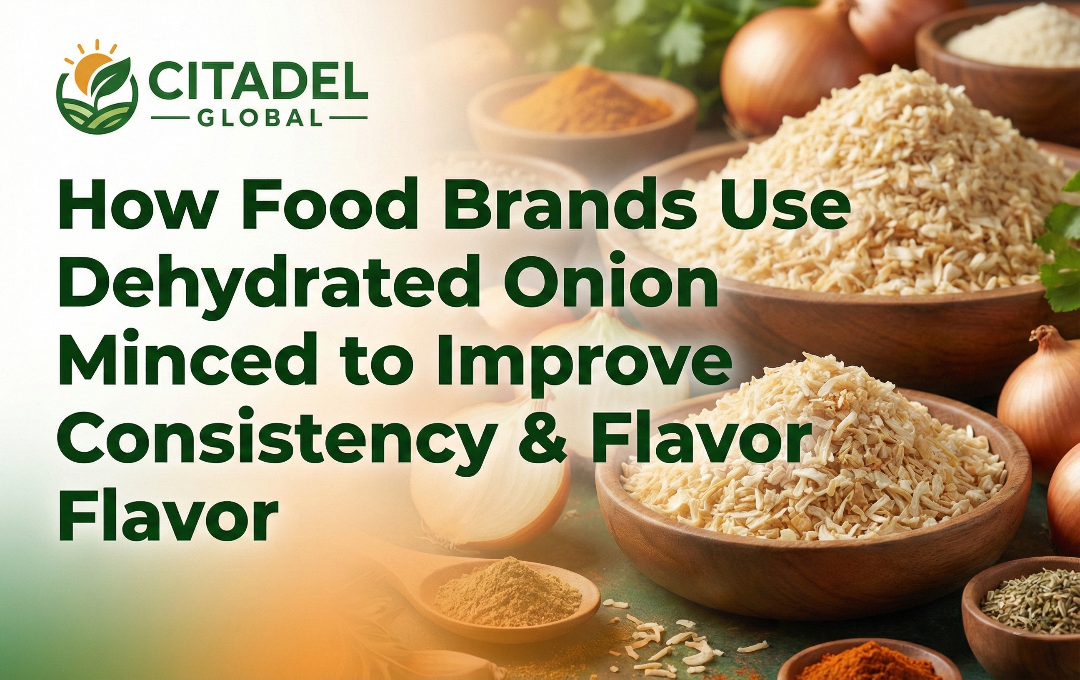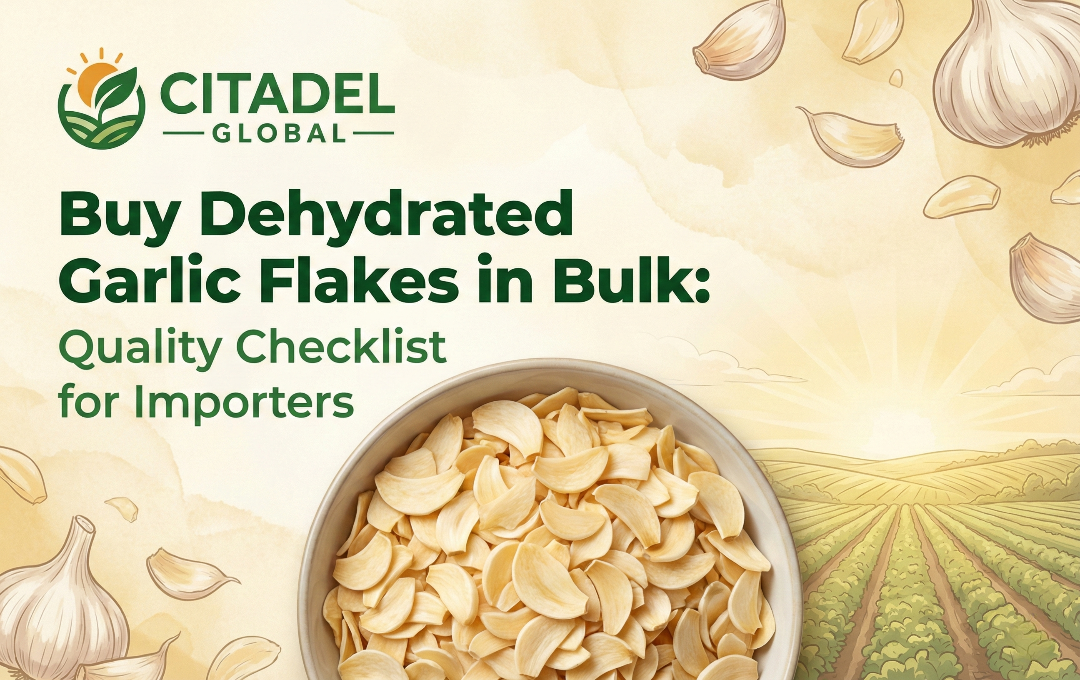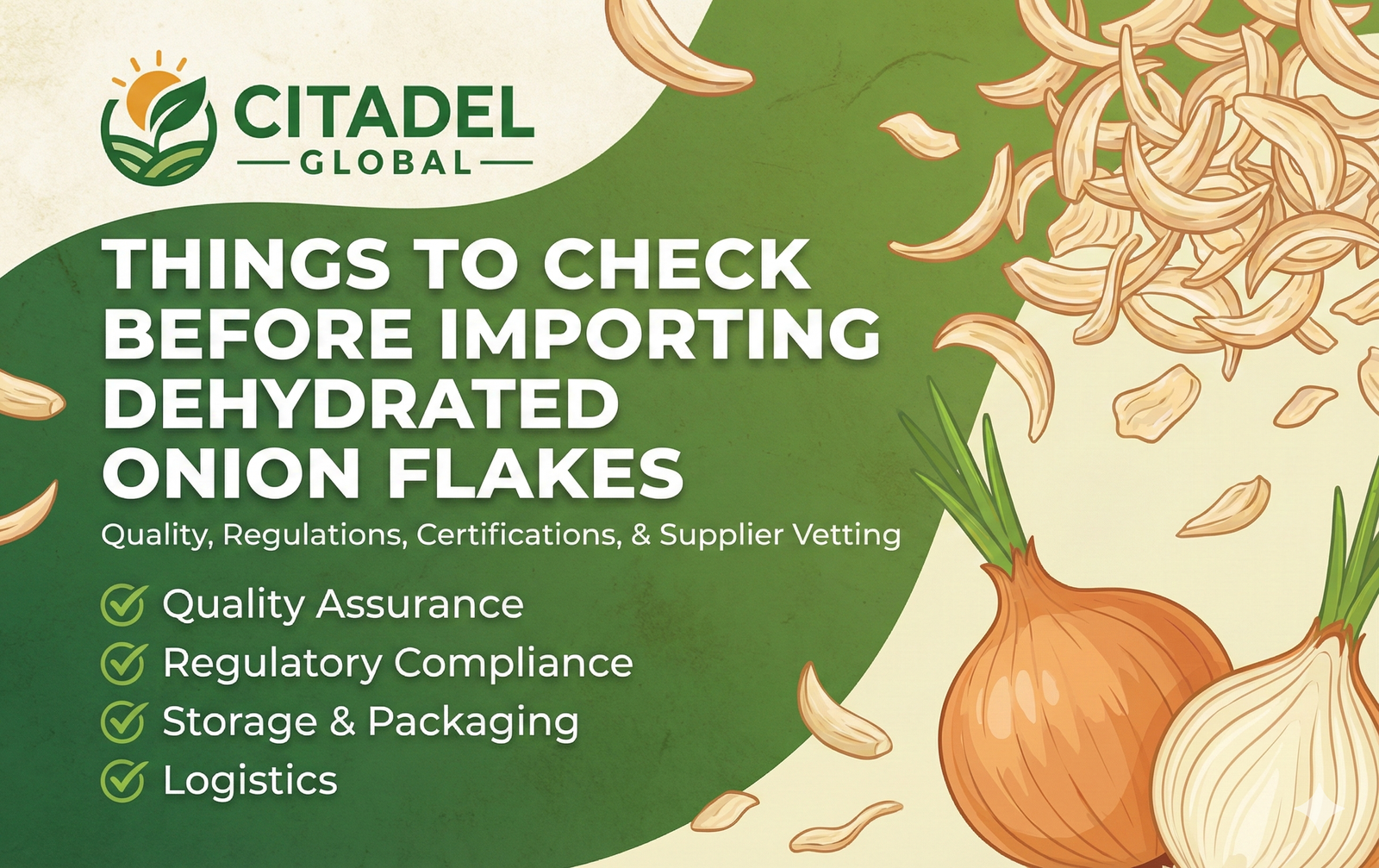


- By Admin
What Are Dehydrated Vegetable Powders? Uses, Benefits, and Market Trends
It starts with a story you’ve probably lived through.
You're trying to run a kitchen, a processing unit, a food chain—or maybe even an import business. You stock up on fresh vegetables, assuming they’ll hold through the week. But the garlic sprouted, the onions softened, the leafy greens gave up, and the waste pile keeps growing.
Now, multiply that loss by 10,000 units and stretch it across an ocean.
This isn’t just a supply issue—it’s a global food stability crisis.
Welcome to the world of dehydrated vegetable powder, where freshness doesn’t expire in 48 hours, and the flavor is still alive even after crossing three continents.
But… it’s not just about extending shelf life.
It’s about rethinking supply chains. It’s about giving chefs, manufacturers, and buyers the power to scale flavor without bleeding money, nutrition, or time.
Dehydration Isn’t a Shortcut. It’s a Revolution.
Let’s kill the myth early: dehydrated doesn’t mean dead.
Modern dehydration is an advanced technology-driven process that retains up to 95% of nutritional value while removing moisture for long-term preservation. It's science meets integrity.
What you're getting isn’t a compromise. It's precision.
Dehydrated garlic powder, for instance, delivers the same allicin-rich punch without the hassle of peeling, chopping, or spoilage.
It’s sharp, consistent, and trusted across sauces, spice blends, seasonings, and bakery items.
And dehydrated onion powder? That’s the real kitchen workhorse. It gives you the sweetness, umami, and depth of real onions—without the tears or waste. Perfect for pre-mixes, curry bases, soups, and condiments.
And yes, these are not “budget” ingredients. These are efficiency weapons for every food technologist, import planner, and procurement head trying to hold margins together.
Why The Market Is Moving Fast Toward Dehydrated Vegetable Powder
It’s not a trend. It’s an inevitability.
-
The global dehydrated food market is projected to reach USD 100 billion by 2030, with vegetables accounting for over 38% of it.
-
North America and Europe are shifting heavily toward long-shelf life, clean-label ingredients to reduce dependency on volatile fresh produce chains.
-
India, China, and Egypt are emerging as the backbone suppliers, feeding bulk buyers across the globe.
At the center of this evolution is a silent but powerful segment: dehydrated vegetable powder.
It’s easy to transport. Fast to formulate. And brutally efficient in terms of storage.
But there’s something else happening too.
Food is becoming personal again.
People don’t just want ready-to-cook—they want “ready-to-trust.” No additives. No artificial nonsense. And definitely no grey-area sourcing.
That’s where modern exporters—those who operate from FSSAI-certified facilities and control the traceability of every flake—are quietly gaining global loyalty.
Let’s Talk Moringa — Because Superfoods Need a Seat at the Table Too
If you haven’t noticed, moringa is having a moment. Not in health cafes, but in bulk procurement contracts from the UAE to Germany.
Why?
Because moringa isn’t a “cool” supplement anymore. It’s a verified nutritional powerhouse—with 7x more Vitamin C than oranges and 15x more potassium than bananas—and buyers are hunting for reliable moringa powder suppliers who can scale ethically.
And in the dehydrated format, it retains its phytochemicals, antioxidants, and intense nutrient profile without losing color or efficacy.
It’s moving from boutique brands to big-scale food processors who need clean nutrition at industrial volumes.
Why Buyers Are Quietly Switching to Dehydrated Food Exporters in India
Let’s be blunt. India is no longer just a low-cost sourcing hub.
It’s a clean-label powerhouse—if you know where to look.
-
Advanced dehydration facilities in Gujarat and Maharashtra are now running with strict FSSAI protocols, BRC compliance, and custom packaging modules.
-
Exporters here are offering moisture-controlled, pathogen-tested bulk shipments with transparent documentation.
-
And yes, the price point is still better than Europe or the U.S.—but without compromising international safety norms.
This explains why dehydrated food exporters in India are suddenly becoming priority partners for importers in Canada, Germany, UAE, Australia, and beyond.
But there’s a catch—not every exporter can meet the trust bar.
Because hygiene, shelf-stability, traceability, and purity aren’t buzzwords. They’re make-or-break factors when you’re feeding nations.
So What’s the Future? It’s Not Flashy—It’s Functional.
We don’t need another “superfood hero” campaign.
What the world needs now are invisible heroes—ingredients that do their job, never disappoint, and never decay mid-shipment.
-
Garlic that doesn’t go mushy in storage.
-
Onions that hold their flavor in every fry.
-
Moringa that empowers nutrition without synthetic fillers.
-
Powders that last 12 to 18 months in packaging—without preservatives.
That’s the future. And it’s already quietly reshaping the way we trade.
The Final Truth: You’re Not Just Buying Ingredients. You’re Buying Peace of Mind.
And peace of mind only comes from one thing—confidence in the source.
This is where Citadel Global stands tall in the silence.
Not with ads or noise, but with containers that arrive exactly how they were promised.
Based in India and built on traceable supply, Citadel Global has become a go-to name among global importers who demand:
-
Dehydrated garlic powder with full flavor retention
-
Dehydrated onion powder with zero bitterness
-
Vegetable powders processed in FSSAI-certified units
-
Bulk supply capacity that doesn’t cut corners
-
Clean-label, trust-first sourcing from soil to shipment
If you're looking to build something lasting—not just fill a shelf—this is where your search ends.
Because when you choose Citadel Global, you don’t just buy dehydrated vegetable powder. You buy trust, at scale.





